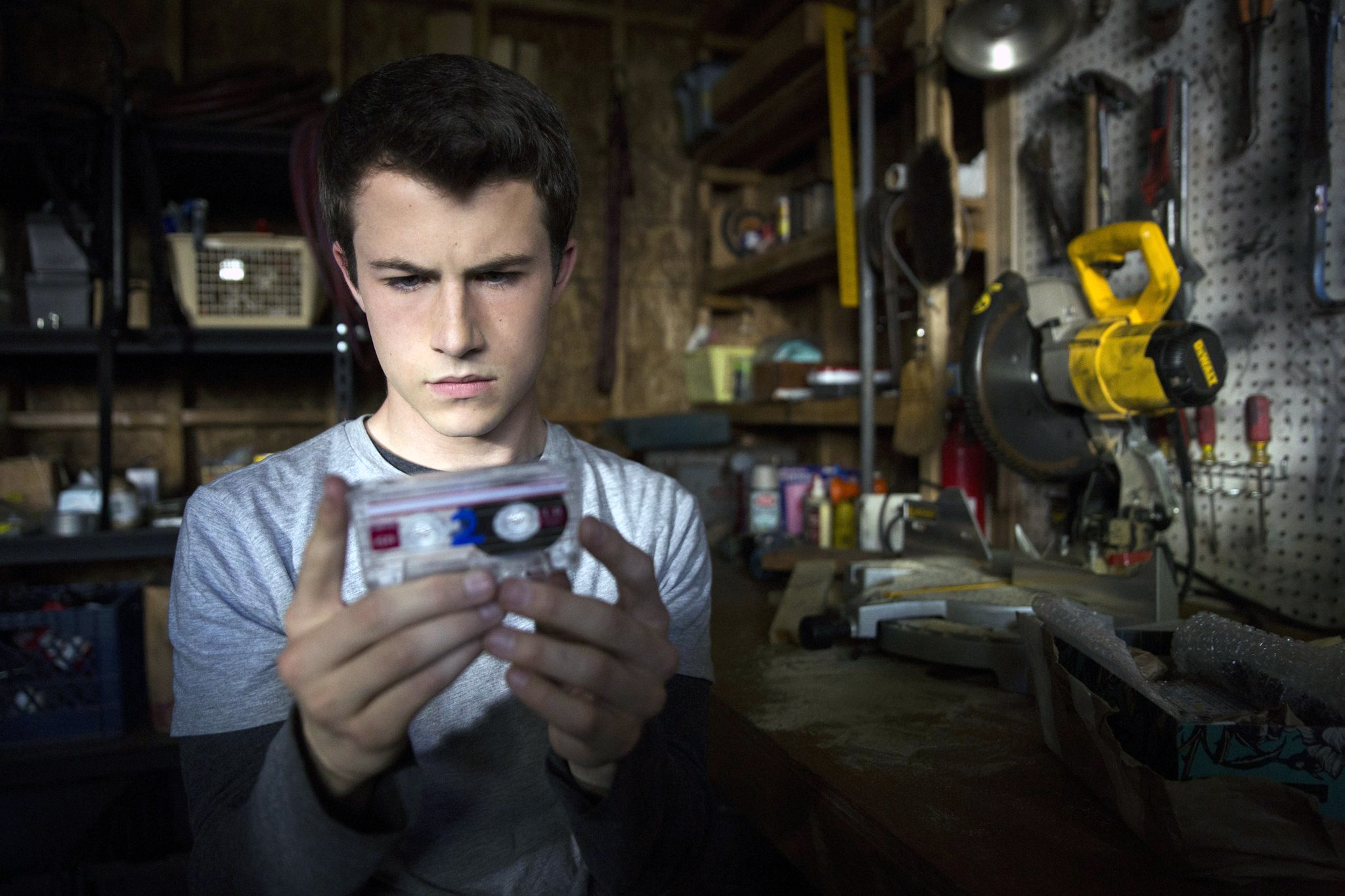By Neyonna Watson
Campus News
Warning: this article contains spoilers. If you haven’t watched the new Netflix Original “13 Reasons Why” and are planning to, I suggest you take the time to read this piece. There’s a whole bunch to break down so we’ll talk about pros first, then cons, then Clay, and then depression. Now this show is a new concept because it is one of the first times TV media has put bullying and depression under a microscope, which is a step in the right direction. I understand what the creators were attempting to do with this show, trying to bring awareness to the cause and to start a conversation, which they ultimately have done.
Pros
All in all the actors did a great job, especially Kate Walsh who plays Hannah Baker’s mom. It might seem strange, but the reason I give her props was because she surrendered herself completely to the role of the grieving mother; among all the actors, her performance really stood out to me.
This show had flaws, don’t get me wrong, but one of the things they got right was the depiction of the school system, administrators and parents. For some reason, schools in general are obsessed with their reputation and how the public views them. What ruins Hannah Baker’s school, and many others nowadays, is the fact that they don’t seem to care about the wellbeing of students enough to do anything. What would save the reputation of schools like the one depicted in the show would be to have a no tolerance policy that applied to everyone, not just the unpopular quiet kids. Instead of paying attention only to the popular outgoing kids who objectively have all the opportunity and praise, they need maybe focus on kids who aren’t popular. Because of this, I think the creators were spot on with the way they depicted the teachers and administrators.
The conclusion for “13 Reasons Why” had my heart beating out of my chest. When the last person received the tapes, I finally felt some level of justice. On a basic level, even with its flaws, I think that “13 Reasons Why” served the purpose it was supposed to.
Cons
Here is what Netflix was going for: Bullying exists and is terrible in all its many forms, and even though the school administration is doing a terrible job of dealing with it, we need to do better or things like this (Hannah’s suicide) will continue to happen. It feels like they wanted to put a microscope to the entire issue plaguing school systems to show people that this really happens.
The unwillingness to discipline students or stand up for what is right, to look a kid in the face and say, “you are wrong” is the problem. If anyone really wanted to help, they would do more than raise awareness. It sounds harsh, but it feels like we have been aware of the problem with bullying for a long time. Here is what anyone dealing with depression or bullying might have gotten from this: Everyone is bad. Everyone. And it won’t get better. Even people who you think are nice are just waiting to screw you over, so they are bad too. The people who are supposed to listen and care for your well-being, they couldn’t care less.
 In this show they made no effort to say that suicide is not the solution; they made suicide look like the only solution for Hannah. They made an unrealistic amount of trauma happen to Hannah; it was ultra-dramatized and sensationalized. The clichés almost irritated me to no end.
In this show they made no effort to say that suicide is not the solution; they made suicide look like the only solution for Hannah. They made an unrealistic amount of trauma happen to Hannah; it was ultra-dramatized and sensationalized. The clichés almost irritated me to no end.
Tony, who is entrusted with Hannah’s tapes, is both a pro and a con. Pro because I enjoyed his presence; he was nice and in an odd way, he was doing the right thing by keeping Hannah’s secrets and that was respectable. On the other hand, I can’t fathom why he would watch Hannah’s parents suffer like that all the while knowing what it would mean to them to have those tapes. I told myself at the beginning of the show, “There had better be a good reason why he couldn’t just give the tapes to the parents as well.” I didn’t catch any other reason than “I thought I was doing the right thing.” How did you think you were doing the right thing by keeping the tapes from them? If the parents had gotten the tapes right after Hannah died the people on those tapes would have gotten justice sooner. Tony seemed more interested in the ritual of the tapes and having everyone play along like it was some kind of game instead of getting the tapes to someone who could get Hannah and her family the closure they needed. This was the larger problem with the show: It made the aftermath of Hannah’s suicide a little game.
Clay and Depression
Let me make something clear: Clay did not belong on those tapes. Hannah was wrong to put the weight of her death on his shoulders. Clay was a normal teenage boy in every sense and he had normal teenage imperfections. Clay was shy and kept to himself; he only really said one bad thing to her, and the rest of the time, he was the only one who showed her any sort of sympathy and kindness. She repaid him by blaming him for killing herself and in turn he blamed himself, which he didn’t deserve.
Depression in all its forms was a large theme in “13 Reasons Why,” and that was one of the pros that I did not get to. Personally, I saw a little bit of me in Hannah and I would like to think others did as well. However, her type of depression was just one type, and I think most critics of this show would have liked to see more. Depression is the wild card of mental health because everyone is different; no one person’s brain is the same. To find out a little more about depression, I spoke with Marissa Reiner, family therapist at Hope House. During our interview, I asked her how and if she changes her approach when dealing with patients, and she gave me an answer that I didn’t expect.
“I don’t know if I have to take a different approach,” she said. “I think it’s more like recognizing that it manifests itself differently.” She went on to tell me how depression manifests itself in boys through aggression and because of that, parents and teachers just think it is a behavioral issue. She also stated, “I think that’s the interesting part of depression, that it can manifest itself differently in people and it might just look like a behavioral issue as opposed to an actual mental health issue.”
I also asked her what she thought would help those dealing with depression, and she told me talking about it more openly would help because unfortunately, people don’t talk about it. No one wants to talk about it for some strange reason, a reason that I don’t understand. Yes, I may be sick, but what’s wrong with that? Because of this unwillingness to discuss depression or any mental disease, people who suffer will continue to do so because people make them believe they are the “other” or not like “normal people,” which caters to the loneliness associated with depression. What I learned from Marissa is that when we start acting like adults and talking about mental health, we will really be able to take a step forward in mental health in this country.






Facebook Comments